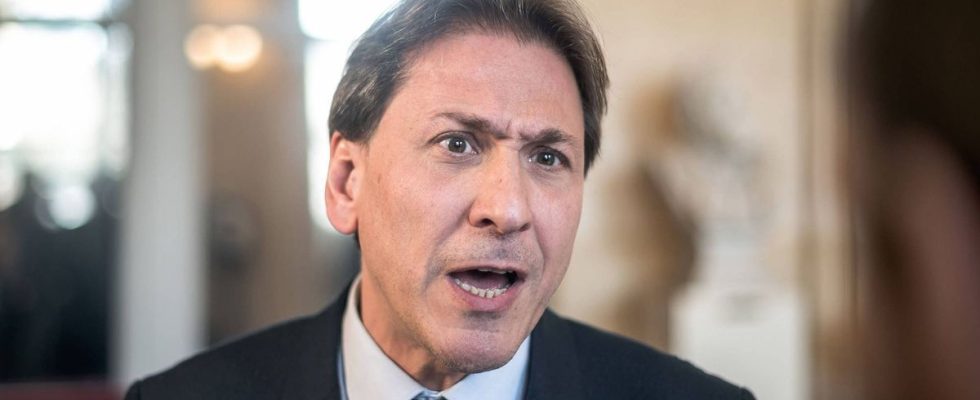Published on
Updated
Reading 3 mins.
Jérôme Guedj, MP for Essonne, criticizes the government’s glaring lack of initiatives in the face of the aging of the population and a Grand Age law promised for several years, but which is not coming. He pushes a real rant on Doctissimo.
Six million French people will be over 75 in 2030 and 2 million will be over 85 in 2040. This observation raises several questions: how can France anticipate this development? How can we best support our seniors? How to avoid an aging crisis tomorrow?… So many questions which the government does not take up, or not enough, according to Jérome Guedj, deputy of Essonne. In Le Parisien, he launched the idea of a transpartisan text to really make the subject of old age a priority. Doctissimo questioned him.
You denounce the attitude of the government which does not make “old age” a priority. For what ?
Jerome Guedj : “The starting point of my rant is that 20 years after the heat wave. After this traumatic event which caused thousands of deaths among our elders, there is an awareness of global warming. But its concrete consequences with regard to the aging population, we still talk about it so little! To be completely honest, nothing has happened since this heat wave: there was the creation of the national solidarity fund for autonomy, the increase in medicalization means in nursing homes, the law of ‘Adaptation of society to aging which has increased the means under François Hollande, but each time a measure is taken, we always run after the scale of the phenomenon. Faced with the massification of aging in progress, there is no necessary change of gear”.
What about the current government?
“It’s worse. When Emmanuel Macron arrives, he says nothing about the subject of aging in his campaign, but in 2018 for the first time, faced with strikes in nursing homes and staff who are exhausted, he announces a Grand age by the end of 2019. It launches a major consultation, a quality report is produced with a strong diagnosis of 175 proposals made with all the players in the sector. But from 6 months to 6 months, the reform is postponed. Coming out of the Covid , he announces a big plan for the elderly, but nothing!And in his last campaign he no longer talks about this law, promised 5 years ago.
There is a real gap between the urgency of today’s needs, recruitment difficulties, the rest to be borne by the families and what is being done. We cannot consider that this is a satisfactory public policy when, according to the President himself, 9 to 10 billion more are missing by 2030”.
Why such a “slowness” according to you?
“It’s political denial, all political governments combined, when the situation is already complicated today. But after 2030, it will be an explosion! Two million people over 85 in 2040, the age of loss of autonomy, it will be seen. We cannot say that it is not foreseeable. Despite this, there persists a kind of denial about the real consequences, and not only on health or medico-social policies, but also on transport or housing policies. Aging in social housing is a concern that HLMs, for example, have not yet tackled head-on. I call for a panoramic policy, to adaptation of society to aging. This is why I tabled last April, based on all the reports written in recent years, a whole series of proposals, translated into an article of law, “my” ideal old age law, 168 articles which aim to show what is expected of the Government”.
Are you also calling for a major transpartisan text to finally get things moving?
“Yes, this is our proposal, if this text on the Grand Age law does not come back on the agenda. The majority of parliamentarians, all the federations, the major associations of elected officials, the actors involved demand a law for old age. We need actions, a framework, and freeing up resources. There is a consensus in the country, a subject that is on everyone’s mind, but it is not at the top of the political priority pile.
